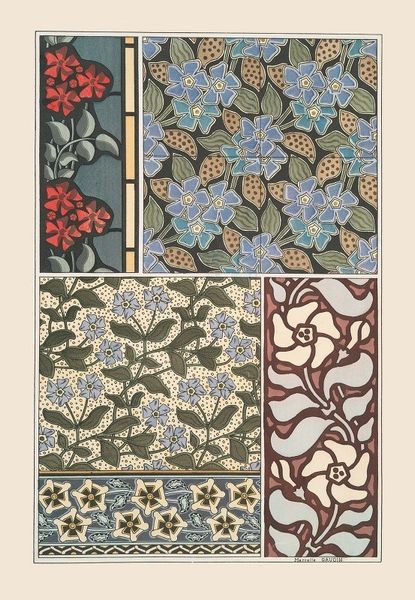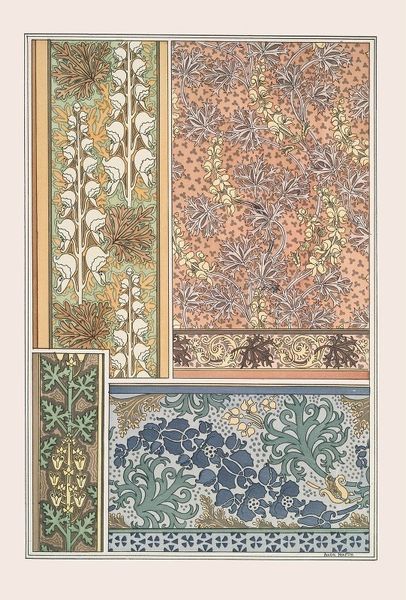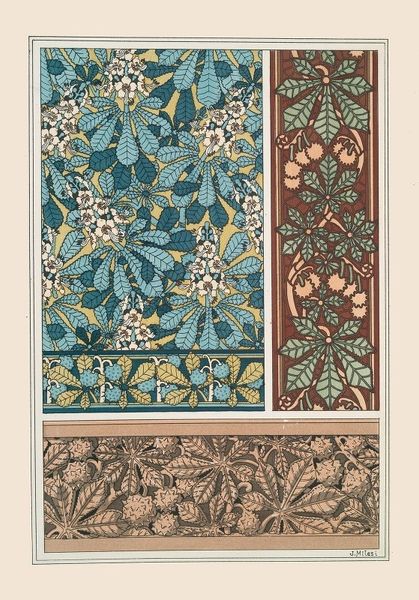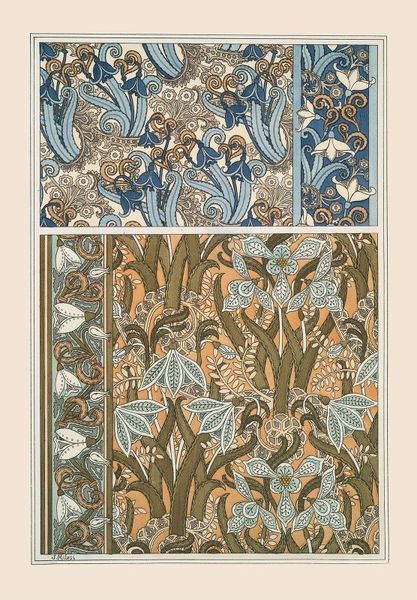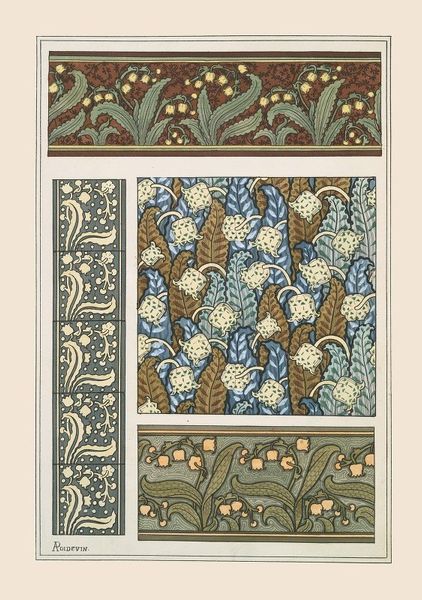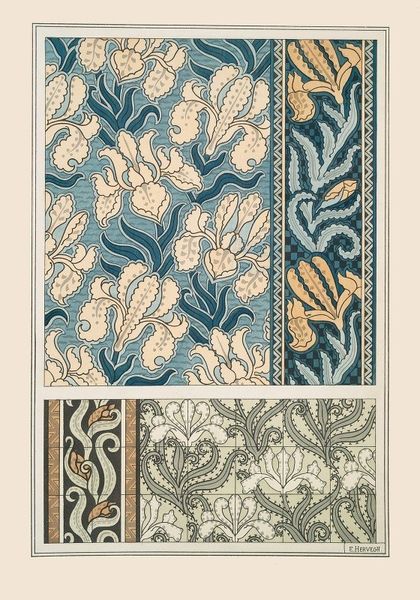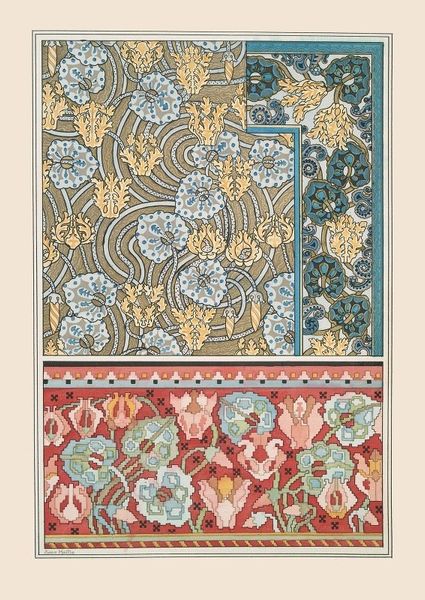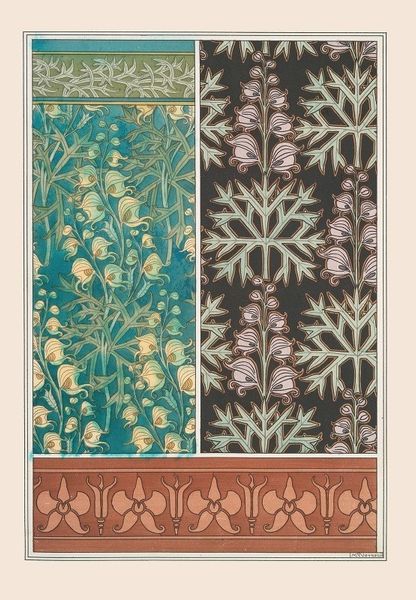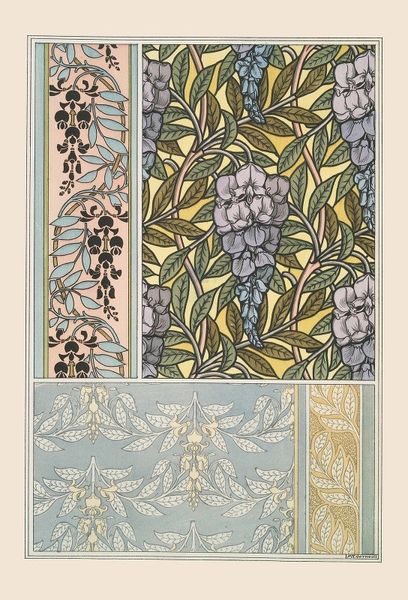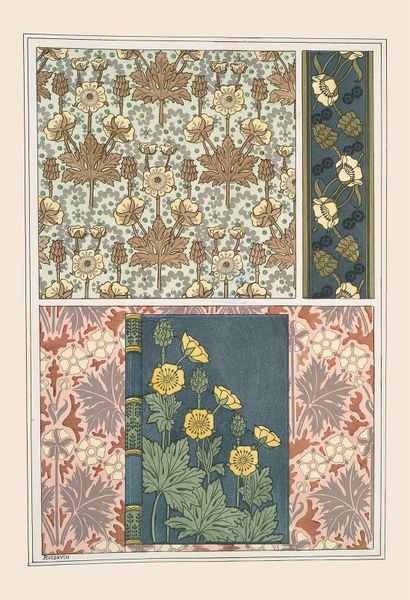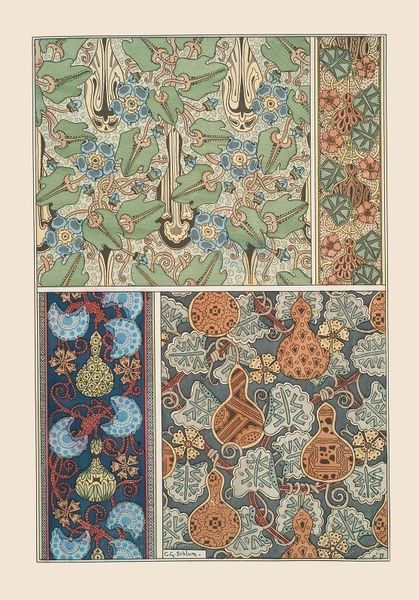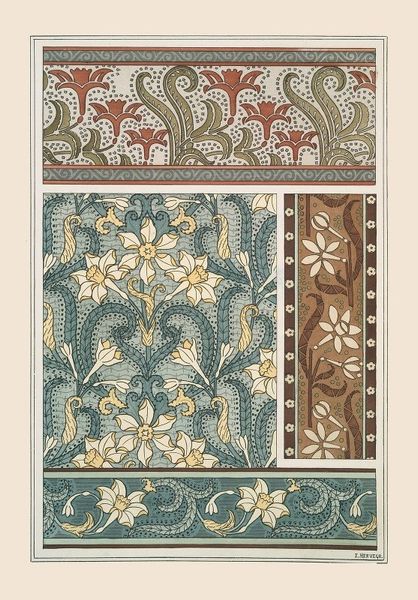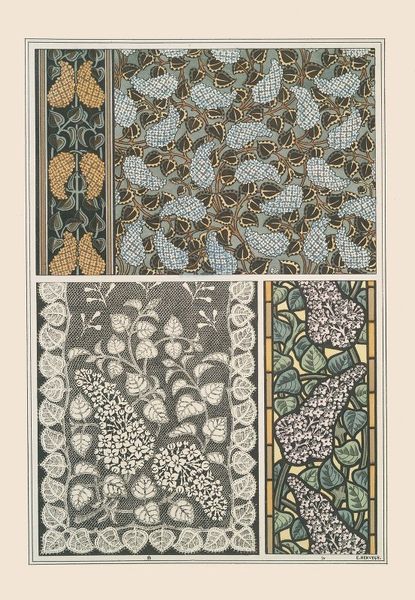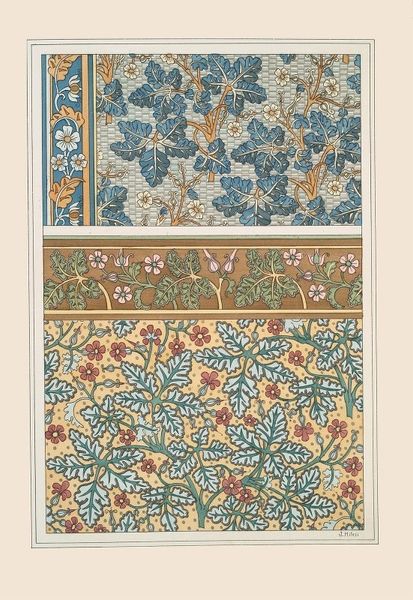
graphic-art, textile
#
graphic-art
#
naturalistic pattern
#
art-nouveau
#
pattern
#
textile
#
pattern background
#
pattern design
#
ethnic pattern
#
organic pattern
#
repetition of pattern
#
vertical pattern
#
pattern repetition
#
textile design
#
decorative-art
#
layered pattern
Copyright: Public Domain: Artvee
Maurice Pillard Verneuil made this pochoir print, Chardon 2, as a design for patterned surfaces. It would have been produced in France at the height of the Art Nouveau movement. Verneuil and his contemporaries drew inspiration from the natural world, but with a very particular vision. Here, the thistle is stylized and flattened, emphasizing decorative rhythm over naturalistic representation. The image is carefully calibrated for industrial production, each colour applied with a separate stencil to create a repeatable pattern. The Arts and Crafts movement in Britain, and Art Nouveau in France, reacted against the alienation of labour in the industrial age by insisting that aesthetic principles could be applied to functional objects. Design reformers believed that this would elevate the quality of life, a utopian vision of art’s public role in the modern world. To understand the image better, it helps to look at design journals and trade publications from the period. These resources allow us to better understand how the image circulated within institutional and economic networks. The meaning of art is always contingent on its social and institutional context.
Comments
No comments
Be the first to comment and join the conversation on the ultimate creative platform.
